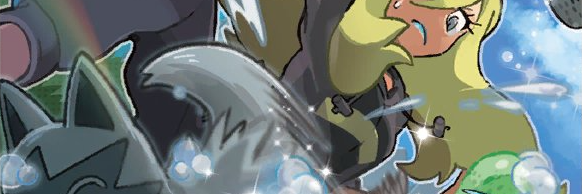
literally i just wrote a normal dude and gave them they/them pronouns because it was narratively convenient; get over your idea that this matters
ZeLink fanfic authors really have very little imagination so hopefully this arouses something in them, idk
i found a smut sitting in my notes app from a longass time ago and i can't remember if i ever incorporated it into a larger work or not
if i didn't i might publish it, not because i think it has value, but because it will give AO3 a chance to wrangle a few tags before i use them in a work that i actually care about
lesbianism today isn't what it was in the 80s, sure, but it's also not what it was in the 00s. i don't buy into the idea that words and movements can only travel the path of normalization in one direction. in fact i think it is precisely the fact that everybody thinks they know what lesbianism is which gives it radical potential for imagining something which isn't.
« Agamben explains, "For everyone a moment comes in which she or he must utter this I can, which does not refer to any certainty or specific capacity but is nevertheless, absolutely demanding. Beyond all faculties, this 'I can' does not mean anything—yet it marks what is, for each of us, perhaps the hardest and bitterest experience possible: the experience of potentiality." For countless feminists in the 1970s, lesbian existence was that formidable force shining a light on the way to a better future.
In bringing together many women of disparate backgrounds, both physically and virtually (in instances of written, audio cassette, or video cassette correspondence), feminist media not only offered representations of lesbian potentiality but facilitated experiences of it. There is a scene near the end of Joanna Russ's science fiction novel ‘The Female Man’ (1975) in which the protagonist Joanna describes acting on her fantasies about her friend Laur as tantamount to creating her own reality—"an impossible project." After kneeling behind Laur's chair as she reads, Joanna kisses Laur's neck and then over her ear and cheek to her mouth, knowing that at any second Laur will rebuke her and "the world will be itself again." Except Laur kisses her back. In this moment, reality for Joanna is torn wide open, and she tells the reader, "If this is possible, anything is possible." Such experiences of potentiality were incredibly common in the 1970s due to lesbian feminism's growing luster. In Russ's novel, Joanna and Laur eventually get stoned and make "awkward, self-conscious love," but "nothing that happened afterward," Joanna tells us, "was as important to me (in an unhuman way) as that first, awful wrench of the mind." » this could be us but you playin
« Attempts in the 1970s to represent queer women's sexualities across media did more than simply ask their viewers to identify with their lesbian characters or celebrate the lives of particular identitarian subjects. While occasionally ontological, lesbian representation was also epistemological, interested not only in what "lesbian" was but also in thinking through what "lesbian" could do to divert and subvert patriarchy and heterosexism. More than mere negation, "becoming lesbian," for many feminists, precipitated "a welcome and joyful expansion of their sexual and emotional vocabularies." »
« Perhaps due to avant-garde film studies' indebtedness to art history and literary studies, biography plays an integral role in much of avant-garde film scholarship. When combined with traditional understandings of feminist and gay and lesbian politics, whereby declaring allegiance and identification with such causes (or, at least, knowledge of filmmaker's sexual practices, despite any disavowal, as in the case of Kenneth Anger) is given precedence, many women's experimental films that might otherwise be read as "lesbian" have not been. » make it gay
« For Atkinson and other "political lesbians," lesbian potentiality was a generic potentiality. It did not precipitate from the lived experiences and knowledges of lesbians in the present. Such a radical feminist approach to lesbian existence becomes a temporal problem, the lesbian existing almost outside of time itself and therefore not truly existing as anything more than a concept. » this is a valid critique although i question the insinuation that there were no political lesbians who were also lived-experience lesbians
quit with the playful “we both know better”-ism; you can’t criticize someone for not appreciating fucking in its whole breadth and then defer on the question of how you like to fuck
- Header
- Delinquent (BREAKpoint 98a) by Megumi Mizutani
Administrator / Public Relations for GlitchCat. Not actually glitchy, nor a cat. I wrote the rules for this instance.
“Constitutionally incapable of not going hard” — @aescling
“Fedi Cassandra” – @Satsuma
I HAVE EXPERIENCE IN THINGS. YOU CAN JUST @ ME.
I work for a library but I post about Zelda fanfiction.
For the time being, this is mostly a mirror of <https://status.ladys.computer/>. Want to get in touch? E·mail me!
